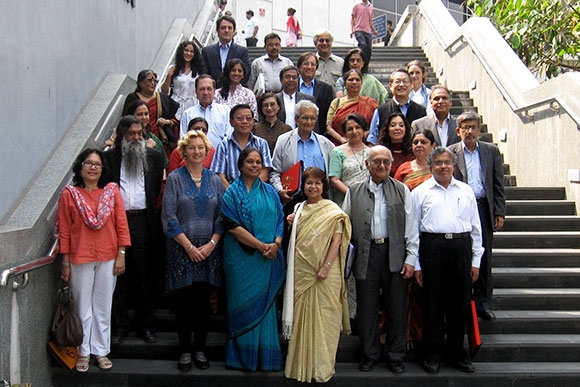Kolkata Group Urges Universal Health Coverage for Equity in India

Why are economic gains not translated into social equity?That was a central question of the Kolkata Group’s Ninth Annual Forum, held February 18-19 in Kolkata, India. CMB President Lincoln Chen, who co-founded the Kolkata Group, joined Nobel Laureate Amartya Sen and 40 other social scientists, policy makers, NGO leaders, and development experts to examine social equity in India. The Forum discussed and debated the reasons why the benefits of economic growth have not resulted in health security for all Indians.
Universal health coverage for all Indian citizens was front and center in discussions, and the Kolkata Group Declaration called upon India’s leaders “to recognize the necessity for the State to provide comprehensive quality primary health care for all.” The group recommended that India increase its public spending on healthcare from the current level of a little over 1 percent of GDP to 3 percent. Participants pointed out that many countries in Asia, even those with lower per capita income, are achieving better results in health and healthcare than India.At present, India’s primary healthcare system fails to provide adequate, affordable protection against common illnesses.
Lincoln Chen also underscored the key connections between the theme of the Kolkata Group and those of the recently completed Commission on the Education of Health Professionals for the 21st Century, which he co-chaired with Harvard Dean Julio Frenk advocating for instructional and institutional reforms in medical education. “India will need to undertake professional education reforms if it is to have the human resources needed to deliver universal healthcare by 2020,” he said.“Joint planning between the education and health sectors, in India as in other countries, can help ensure that professional competencies match patient and population needs” in the realization of universal health coverage.
